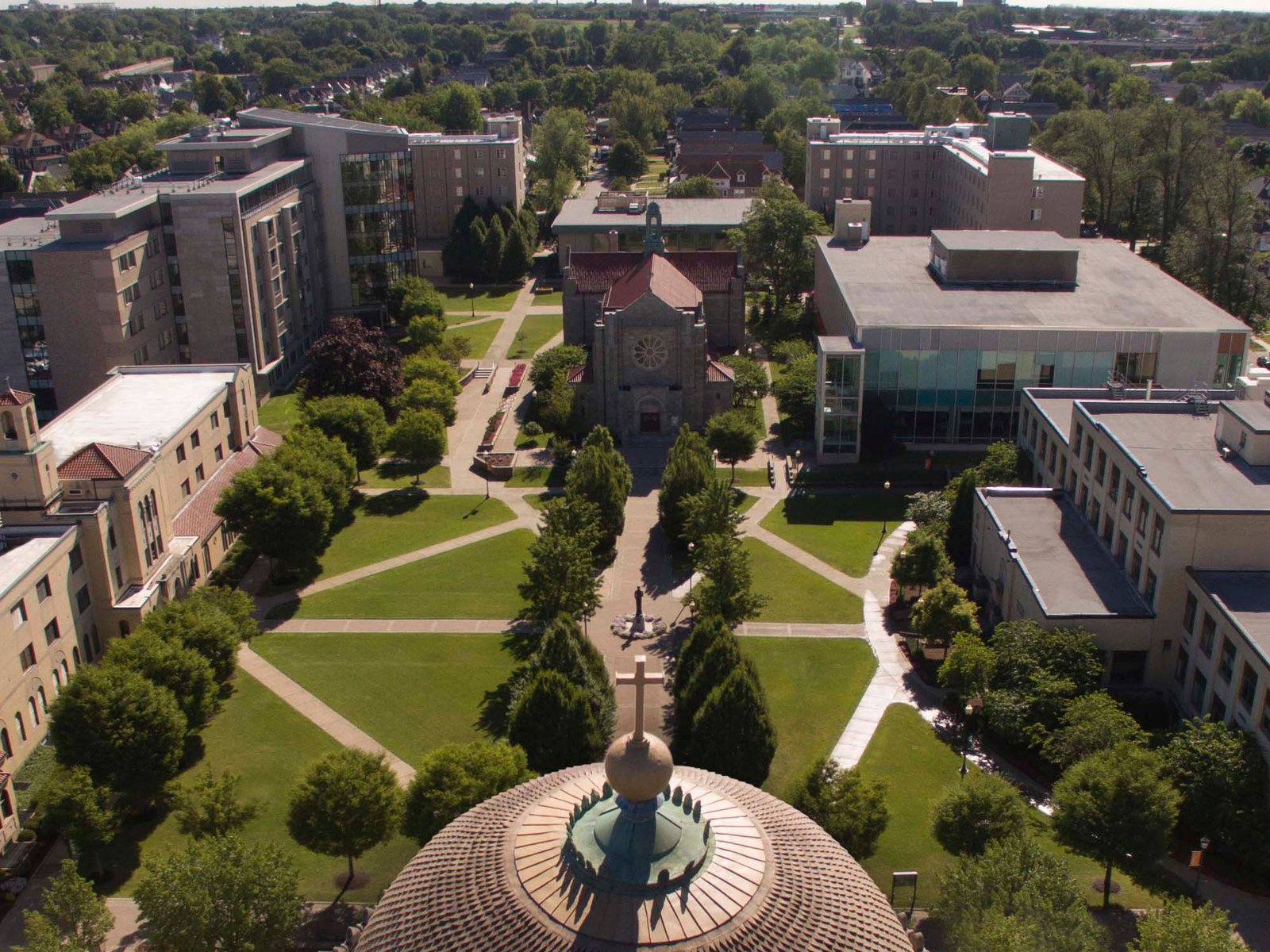Most available estimates predict a STEM worker shortfall in the US ranging between a few hundred thousand and several million workers. The Brookings Institute has aptly described this reality as “one of the most fundamental problems” faced by the US which requires greater investment to “boost our workforce development and STEM education training in order to stay competitive”. The “Connect Four” project will address this challenge through direct engagement with regional innovation ecosystems. The team brings together Albion College, Canisius University, Northwest Arkansas Community College, and Roanoke College, each well positioned to advance innovation in relevant regional ecosystems.
The team seeks to advance four aims:
Scale up Capacity to develop and sustain external partnerships,
Expand our Connections to a wider network of external partners,
Develop improved means of Communication with critical stakeholder groups, and
Conversion of one-off interactions into models of sustainable and repeatable partnerships at scale.
The team aims to build regional innovation partnerships to enhance workforce development. Each institution will establish administrative capacity, scale faculty involvement in external partnerships (i.e., industry, regional innovation centers, non-profits, government, and other educational institutions), and create resources for sustainable partnerships. Methods include implementing strategic recommendations, expanding existing college-external partnerships, leveraging client engagements, and creating a toolkit to document and streamline external engagement.
The project will address barriers such as limited faculty experience, high teaching loads, and lack of familiarity with regional workforce needs through EPIIC Faculty Fellow programs, professional development, and structured outreach. This initiative will foster robust ecosystems of external partner-academic collaboration, support institutional transformation across diverse educational environments, and contribute to the long-term economic development of each institution. This award reflects NSF's statutory mission and has been deemed worthy of support through evaluation using the Foundation's intellectual merit and broader impacts review criteria.
Albion College
Albion College is using the Connect Four initiative to deepen faculty-industry collaboration, expand its regional innovation footprint, and provide students with real-world experiential learning opportunities that directly support workforce development. By establishing administrative support structures and aligning classroom learning with industry needs, Albion is strengthening its capacity to build repeatable, scalable partnerships across Michigan’s regional ecosystem.
Canisius University of Buffalo New York
The Connect Four cohort is a collaboration between Canisius University, Albion College, Roanoke College, and NorthWest Arkansas Community College. Our overarching goal is to build regional innovation partnerships to enhance workforce development. Predominantly Undergraduate Institutions (PUIs) and two-year institutions lack the resources and infrastructure to develop the partnerships needed to fully participate and drive broader change. Through collaboration Connect Four members seeks to overcome these challenges by:
Scaling up Capacity to develop and sustain external partnerships
Expanding our Connections to a wider network of external partners
Developing improved means of Communication with critical stakeholder groups
Converting of one-off interactions into models of sustainable and repeatable partnerships at scale
The Canisius Team is actively collaborating with local industry and government entities to build strong partnerships. These efforts include engagement with sectors such as healthcare, critical infrastructure, and advanced STEM research. The response has been tremendous, leading to Canisius-led workshops that educate the workforce and the identification of research opportunities that provide students with valuable experiential learning.
NorthWest Arkansas Community College
Northwest Arkansas Community College is advancing its role as a key player in regional economic development by using the Connect Four project to create sustainable pathways between academic training and industry needs in the rapidly growing Northwest Arkansas innovation corridor. Through expanded faculty engagement, administrative infrastructure, and strategic outreach, NWACC is equipping students, including nontraditional learners, with the skills, connections, and experiences necessary to thrive in high-demand STEM fields.
Roanoke College
Roanoke College's NSF EPIIC award has allowed the establishment of the Roanoke College EPIIC Initiative. The first and immediate goal of the Initiative is to equip our faculty, staff, and students with the resources, experience, terminology, and processes to initiate connections with the Roanoke region’s science, technology, engineering, math, and health (STEM-H) innovation ecosystem. The second and longer-term goal is to envision and implement pathways for the College to build capacity and efficiencies to convert these STEM-H connections into mutually informed durable partnerships as part of regional STEM-H infrastructure development.
With this NSF support, Roanoke College EPIIC Fellows (selected faculty/staff) and EPIIC Scholars (selected students) are identifying the current state of foundational processes required to initiate and build regional partnerships. This information will position Roanoke College to partner more effectively with regional STEM-H organizations to better address regional workforce needs. In collaboration with our colleagues at Albion, Canisius, and NW Arkansas, we are generating a toolkit of materials relevant to partnership building (e.g., literature, definitions, processes, sample documents) that will support other smaller higher education institutions to build and sustain partnerships within their regional innovation ecosystems.
Looking longer-term, the Roanoke College EPIIC Initiative has begun to promote an institutional culture shift about partnership building by establishing a community of practice focused on partnerships both within and beyond the STEM-H innovation ecosystem. One of the core goals of both the Initiative and the community of practice is to identify and develop institutional policies, procedures, and resources that will sustain the partnership building efforts of the College beyond the support of the award.













